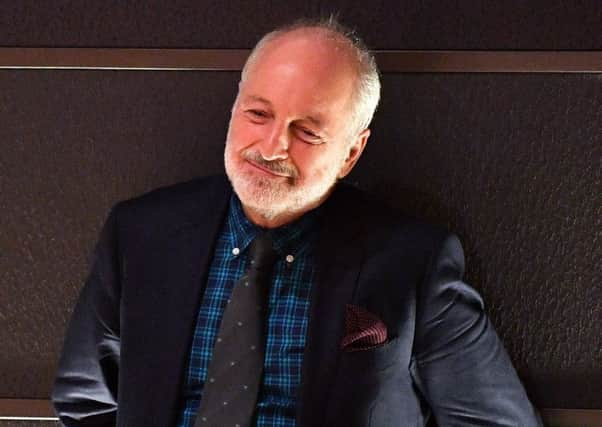Book review: Find Me, by André Aciman


Nevertheless, he had a great success a few years ago with Call Me by Your Name, the story of a love affair between Elio, a boy of 17, and Oliver, a man eight or ten years older. It was later successfully filmed.
Elio and Oliver reappear in his new novel, though for the long first section of the book Elio, now a concert pianist, is a subsidiary character and Oliver is off stage.
Advertisement
Hide AdIt begins with an encounter on a train from Florence to Rome. The narrator is Samuel, Elio’s father, a historian and art critic. He is on his way to deliver a lecture on the Fall of Constantinople and to meet Elio when he begins a conversation with a young woman, Miranda, who is on her weekly visit to her elderly father. They fall into a probing and revealing exchange. Rather daringly, in view of today’s concerns, Aciman gives us an autumn and spring romance. It begins with talk that is both enquiring and revealing; in his novels people say what in real life they are perhaps more likely only to think, a criticism often made of the Wilson and Murdoch novels Aciman’s recall. When Samuel gets a message from Elio postponing their meeting, Miranda invites him to come with her to her father’s apartment for lunch.They stop off at the market in Campo de’ Fiori, nostalgically described, and in the afternoon they wander through Rome, visiting old haunts and talking, and talking. Eventually of course they will do more than talk and when Elio joins them the next day, he will be delighted to see his father rejuvenated and in love. Rome is beautifully evoked. Love for the city nurtures the love developing between Samuel and Miranda.
Elio is the narrator of the second section set in Paris, where he will have an affair with an older man, while still longing for Oliver, who is given his voice in the third section set first in America. He had been married, is a father, but readers who loved the earlier novel will want to know if he and Elio come together again. They must read the book to find out, though the title is suggestive.
There are dark family memories of the fate of Europe’s Jews, and the Paris scenes are set in autumn turning to winter – perhaps the most poignantly Parisian of seasons when cobblestones are slippery and mist rises from the Seine, but for the most part this beautifully-written novel is suffused with a golden, early autumnal light.
The theme is the need for love, the necessity of love. “Love is easy,” Samuel tells Elio, “it’s the courage to love and trust that matters, and not all of us have both… I’ve taught you how to earmark moments when time stops, but these moments mean very little unless they’re echoed in someone you love. Otherwise they stay in you and either fester all through your life or, if you’re lucky – and very few are – you’re able to pass them on in something called art, in your case music.” Or, one may say, in Aciman’s own case, the art of fiction.
Aciman takes pleasure in his characters, cares for them and invites readers to do so too. He is out of tune with the spirit of our time, for he believes in the transforming power of love, and writes of joy and heartache with tender sympathy. Like so many novelists today he teaches in a university, in his case “comparative literature” to graduate students in New York. I would think them fortunate. Allan Massie
Find Me, by André Aciman, Faber & Faber, 260pp, £14.99